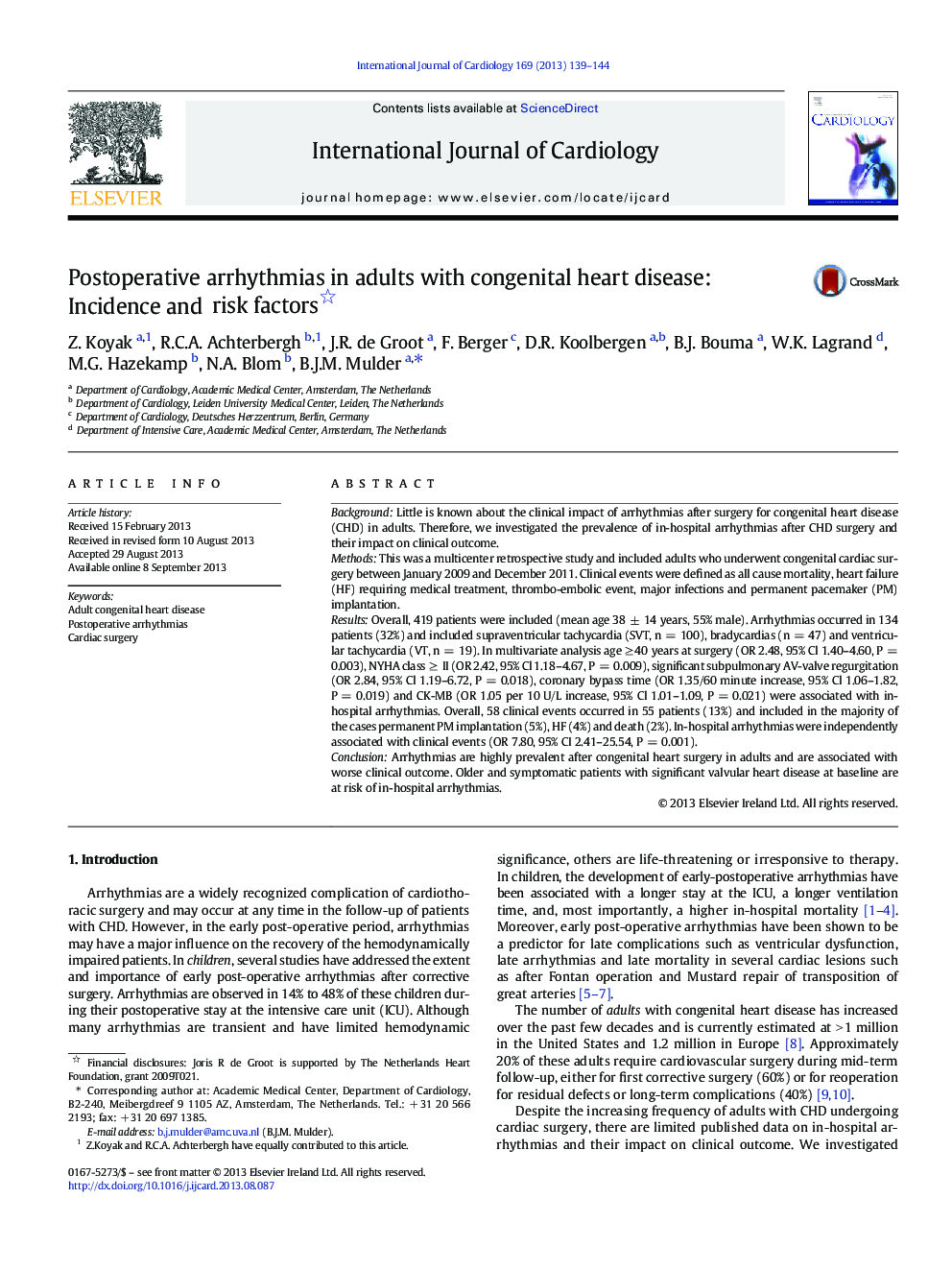| Article ID | Journal | Published Year | Pages | File Type |
|---|---|---|---|---|
| 2929328 | International Journal of Cardiology | 2013 | 6 Pages |
BackgroundLittle is known about the clinical impact of arrhythmias after surgery for congenital heart disease (CHD) in adults. Therefore, we investigated the prevalence of in-hospital arrhythmias after CHD surgery and their impact on clinical outcome.MethodsThis was a multicenter retrospective study and included adults who underwent congenital cardiac surgery between January 2009 and December 2011. Clinical events were defined as all cause mortality, heart failure (HF) requiring medical treatment, thrombo-embolic event, major infections and permanent pacemaker (PM) implantation.ResultsOverall, 419 patients were included (mean age 38 ± 14 years, 55% male). Arrhythmias occurred in 134 patients (32%) and included supraventricular tachycardia (SVT, n = 100), bradycardias (n = 47) and ventricular tachycardia (VT, n = 19). In multivariate analysis age ≥ 40 years at surgery (OR 2.48, 95% Cl 1.40–4.60, P = 0.003), NYHA class ≥ II (OR 2.42, 95% Cl 1.18–4.67, P = 0.009), significant subpulmonary AV-valve regurgitation (OR 2.84, 95% Cl 1.19–6.72, P = 0.018), coronary bypass time (OR 1.35/60 minute increase, 95% Cl 1.06–1.82, P = 0.019) and CK-MB (OR 1.05 per 10 U/L increase, 95% Cl 1.01–1.09, P = 0.021) were associated with in-hospital arrhythmias. Overall, 58 clinical events occurred in 55 patients (13%) and included in the majority of the cases permanent PM implantation (5%), HF (4%) and death (2%). In-hospital arrhythmias were independently associated with clinical events (OR 7.80, 95% CI 2.41–25.54, P = 0.001).ConclusionArrhythmias are highly prevalent after congenital heart surgery in adults and are associated with worse clinical outcome. Older and symptomatic patients with significant valvular heart disease at baseline are at risk of in-hospital arrhythmias.
